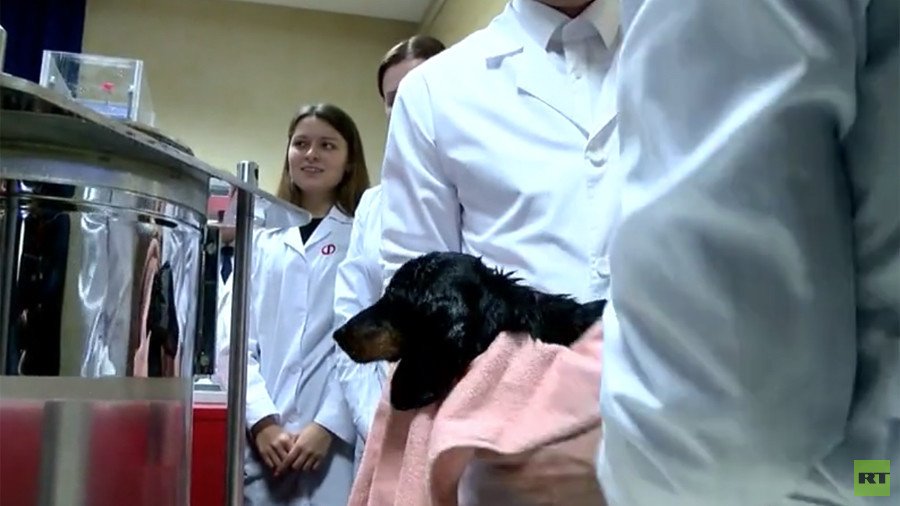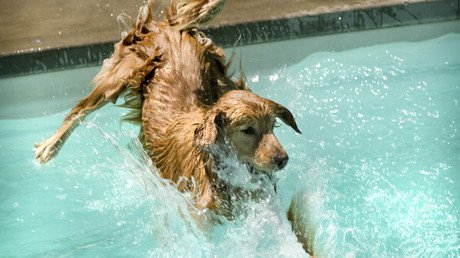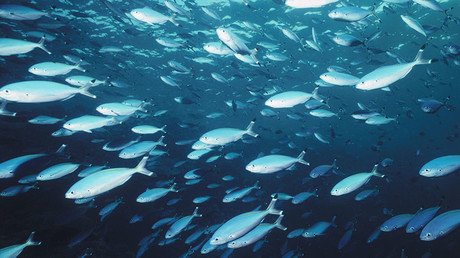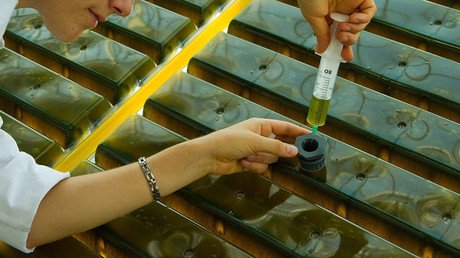Russian liquid breathing experiment draws animal cruelty criticism (DISTURBING VIDEO)

Russian scientists have demonstrated that a canine can survive underwater using liquid breathing technology. And while it's primary goal is to save lives, the experiment has been criticized as bordering on animal cruelty.
Russian scientists have for years been working on technology that can provide new emergency evacuation methods for submarine crews, and potentially help pilots and even space travelers to withstand extreme g-loads. The possibility of liquid breathing has been the stuff of science fiction, until an advanced Russian military research agency started experimenting with the technology which requires filling the lungs with a liquid rich in oxygen.
The controversial demonstration of the scientific breakthrough was caught on camera this week, as Dmitry Rogozin, the head of Russia’s defense industry, showcased the country’s latest developments to Serbian President Aleksandar Vucic. The experiment that demonstrated that a dachshund can breathe underwater, was immediately condemned by online animal welfare campaigners.
WARNING: DISTURBING VIDEO
The extremely disturbing footage, which is not for the fainthearted, shows scientists from the Foundation for Advanced Research Projects forcibly submerging the dachshund headfirst into a water tank before shutting the lid. The video then shows the animal struggling to get out, before its lungs fill up with oxygen-rich liquid. After some time, the lid is opened, and the frightened dog is pulled out alive.
If this doesn't upset you, then I'm afraid you're not a human being.Retweet to put an end to this #AnimalCruelty.@Peta@ASPCA#AnimalLoversDog 'breathes UNDERWATER' in footage of Russian experiment https://t.co/cY5cP3nBeU via @MailOnline
— AJ Monte USN Patriot (@theoptionoracle) December 20, 2017
While the animal was not harmed, social media users condemned the experiment. “If this doesn't upset you, then I'm afraid you're not a human being,” one tweeted. Others called the study “torture,” while questioning the legality of the experiment. Animal rights groups have not yet responded.
Animal testing is still happening. It’s inhumane and unnecessary. Dog 'breathes UNDERWATER' in footage of Russian experimenthttps://t.co/JL1Q35sSgQ
— emma Ⓥ (@emreffelll) December 20, 2017
Despite the criticism, the advanced study of liquid breathing promises a scientific breakthrough. Previous experiments showed that an animal can safely breathe for more than half an hour at a depth of up to 500 meters without any visible health consequences. Following up on the experiments on the dog, Russian scientists plan to create a special suit, which can first of all be used by submariners for emergency evacuations.
While underwater, the external pressure increases by roughly one atmosphere every 10 meters and a person breathing air has increased concentrations of nitrogen dissolved in the blood and tissues. But when the individual’s lungs are filled with oxygen-rich fluid, the pressure inside the body balances the external pressure, allowing a person to safely resurface from greater depths without a lengthy decompression procedure.
The technology can also potentially be applied to counter the g-force phenomenon. Military pilots and astronauts endure tremendous loads during takeoff and maneuvers. Using liquid breathing technology, it is theoretically possible to create a suit where the fluid will help evenly distribute the load in all directions and push the limits of the human body.
Liquid breathing tech can also help battle a number of lung-related problems. “In addition to solving important military problems, this development will help doctors to nurse preterm infants. Technology can also be used to help people who have received burns of the respiratory tract,” Rogozin said on his Twitter page.
The controversial experiment is not the first time that a man’s best friend has been helping humankind to conquer new frontiers. On August 19, 1960, Soviet stray dogs Belka and Strelka won themselves worldwide fame and glory after successfully performing a 24-hour Earth orbit on the Vostok spacecraft and returning back on Earth safe and sound.















